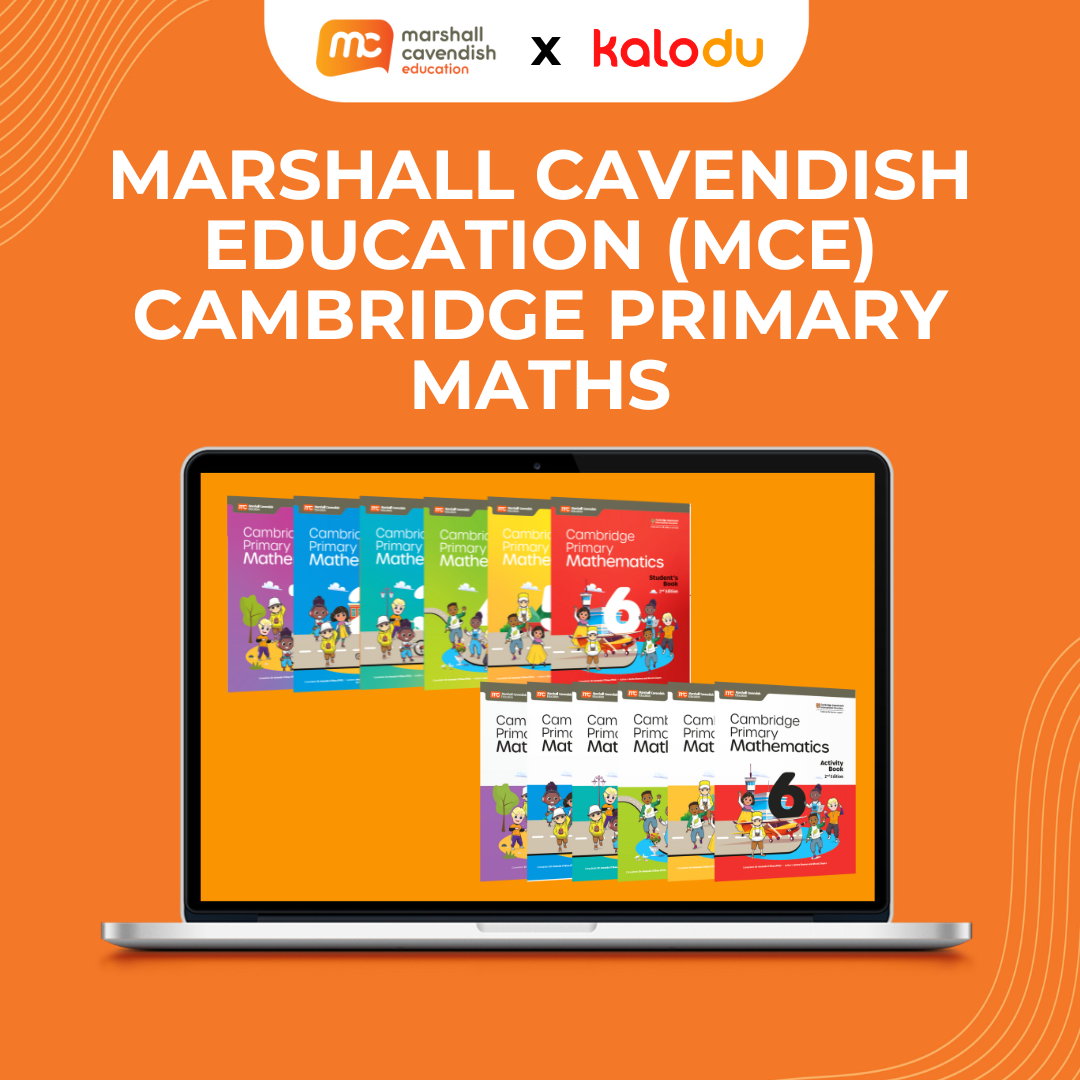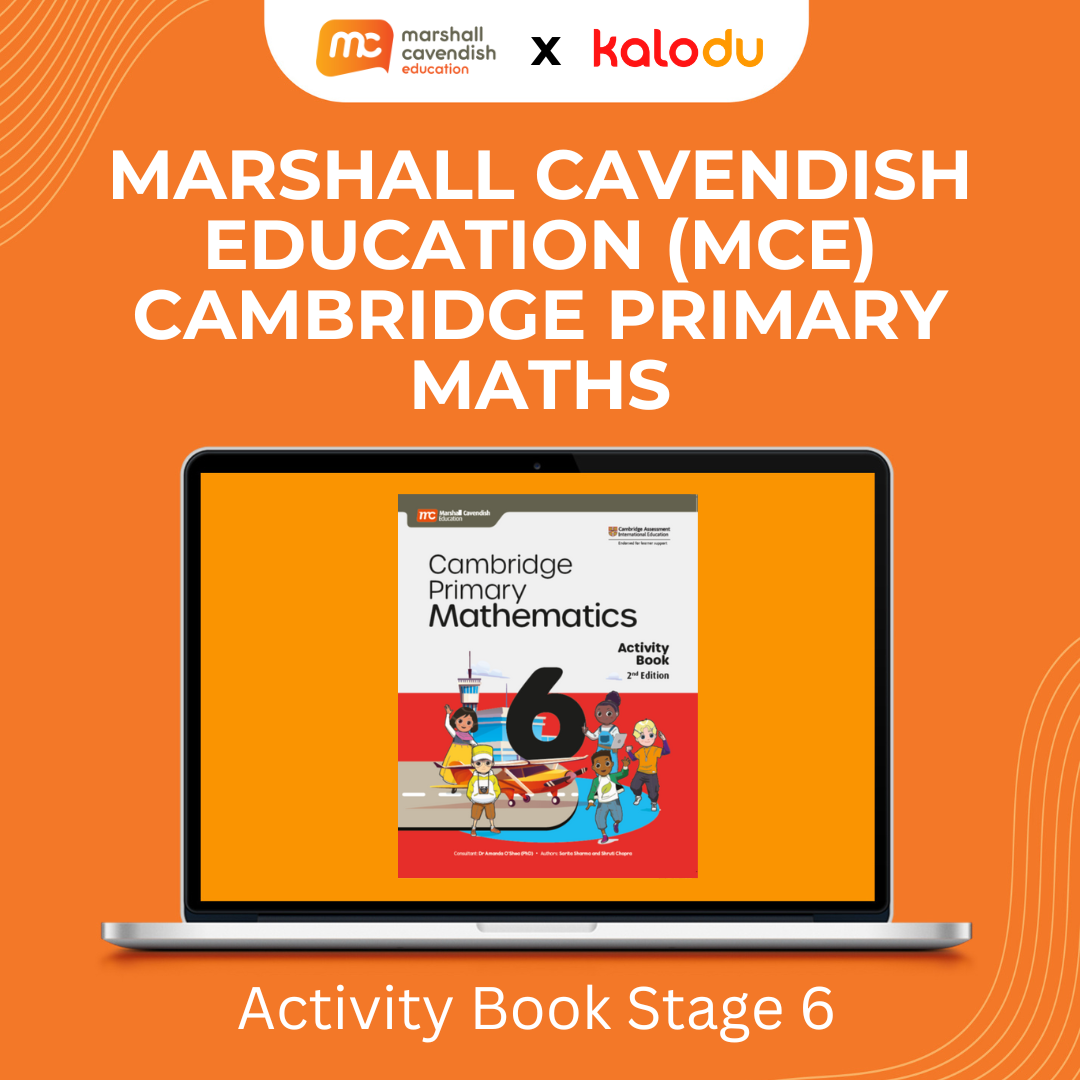MCE Cambridge Primary Maths (2nd Edition)
MCE Cambridge Primary Maths (2nd Edition)
Couldn't load pickup availability
PRODUCT DETAILS
Usage Duration: 12 months subscription upon activation
Usage Platform: MCEduHub
Curriculum: Aligned to the Cambridge Primary Mathematics Curriculum Framework (0845/0096, for first teaching in 2021)
Type:
- Student Book: Enhanced eBook (THIS IS NOT A PHYSCIAL BOOK)
- Activity Book: eBook (THIS IS NOT A PHYSCIAL BOOK)
Edition: 2nd Edition
PRODUCT INFORMATION
The MCE Cambridge Primary Maths (2nd Edition) package nurtures Cambridge active learners, using the CPA approach to help them develop a broad understanding of mathematics and the ability to apply math in their daily lives. It encourages learners to become more confident and self-directing through activities that promote engagement, curiosity, innovation and reflection.
The series develops learners as 21st Century mathematical thinkers within a globalised community. The series is intended to build on the success of the existing MC Math’s series active learning approach, easy-to-understand English and vibrant, colourful visuals but also to answer the emphasis of the current syllabus on “Thinking and Working Mathematically” as well as market requests for products that include real-life contexts and foster critical thinking in students.
STUDENT BOOK
 |
Chapter Opener This will feature an engaging scene with a dialogue between two characters followed by questions intended to foster discussion about a key mathematical principle or misconception that will be covered in the subsequent chapter. Real-life scenarios are used where possible and the opener allows learners to consider what they already know in the context of the new information that will be covered in the chapter. Using a mobile app to scan the images will call up supporting video, animations, or augmented reality clips (‘Marker Recognition’). |
 |
Look Back This section lists 1-3 questions meant to remind students of related knowledge that they have learned in the previous section of the progression grid. |
 |
Thinking Cap This is a “learning by productive struggle” section. The intent is to ask the learners probing questions about the section learning objectives to provide an opportunity for them to extend and extrapolate from their prior knowledge. They may or may not arrive at the correct answer, thus making this section serve as a form of pre-assessment. |
 |
Let’s Learn The purpose of this section is to slowly guide the learners into understanding mathematical concepts through concrete, pictorial, and abstract tools. The content is presented in bite-sized chunks, with each chunk prefaced with a question to scaffold the concept teaching. These questions enable learners to stop, think and engage with key concepts. |
 |
Let’s Practise This section presents questions across a range of real-world contexts that allow learners to practice key skills related to the concepts covered in the lesson. Questions vary in difficulty, with the initial questions adhering closely to the worked examples in the Let’s Learn, building up to more non-routine, higher-order thinking questions to challenge more confident learners. |
 |
Be a Maths Champion This is an activity or a game that links all the main LOs across a chapter, serving as summative review for young learners. |
ACTIVITY BOOK
The Activity Books are intended to provide additional practice and reinforcement of key mathematical principles and skills taught in the Student’s Book. The worksheet questions of varying difficulty therefore make up most of the book. There are three levels of questions, with the Level 1 recall questions leading on directly from examples given in the Student’s Book while the Level 2 questions require learners to apply learned principles to different scenarios and understand how to approach the questions. Level 3 questions are intended for more confident learners and encourage use of mathematical terms and Thinking and Working Mathematically. Finally, What can I do now? is a self-reflection section that incorporates journaling.
An additional section in key chapters is Be a Math Explorer, which is intended as an open mathematical project for learners, where they develop 21st century skills such as global perspectives, use of ICT and collaboration with others. It can also include STEAM & other cross-curricular elements.
Share

The Best Way to Learn is with Marshall Cavendish Education
Your child learns best with Marshall Cavendish Education full suite of Digital Platforms.















